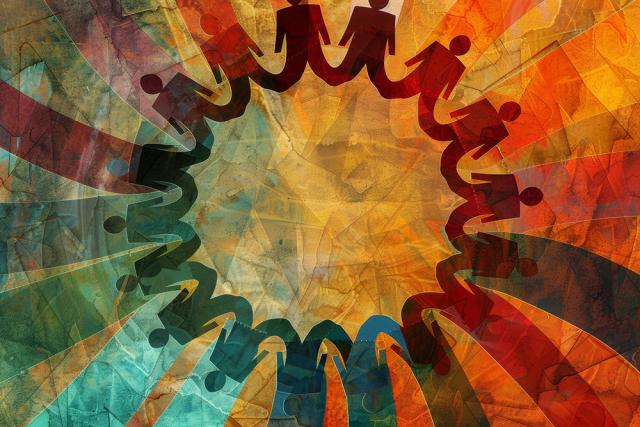
Inclusive Excellence Restorative Options for Conflict Resolution Initiative (ROCR) provides support to students, staff, and faculty who are seeking to address conflicts and challenges within a restorative framework. We use a restorative methodology to support parties to work collaboratively with certified facilitators to address conflict, center accountability, and identify a path towards resolution.
To set up a consultation, contact Dr. Sara Childers, assistant vice provost for inclusive excellence, at childers.23@osu.edu.
What are restorative options for conflict resolution?
ROCR uses a community-based approach to address conflict, with a focus on healing, accountability, and social support to all parties involved. Our restorative approaches are based in professional practice and academic scholarship. Restorative services can now be found working in tandem with criminal justice systems, K-12 education, and post-secondary conduct and compliance. We utilize a restorative methodology to provide structured opportunities for parties to address conflict and accountability and to collaboratively seek resolution.
What are the benefits of restorative options?
- Address conflict and proactively build community
- Strengthens communities and re-establish relationships
- Emphasizes our core humanity and the respect and dignity of all involved
- Based in active accountability and communal problem solving
- Based in consent and is trauma informed
- Emphasizes learning, growth, and reintegration of parties involved
- Aligns with The Ohio State University's shared values, learning goals, and supports student and employee development and retention
What does a conflict resolution process look like?
- Intake – Units or individuals can reach out proactively to our office, or HR, compliance, or a related unit can refer a concern. We will schedule an initial consultation to determine if a restorative process is appropriate. We would then reach out to all of those involved to invite their participation.
- Preparation Process – ROCR staff will meet separately with individuals involved in the conflict or challenge using a structured preparation process. We will work with participants to develop a process focused on resolution. Once all parties agree to the process and feel ready to meet, we will schedule the conference.
- Conference – Parties engage in a facilitated process known as a conference to work toward a resolution.
- Evaluation – Participants will be asked to evaluate the process via electronic survey.
Restorative Options
Once we receive your request, ROCR staff will schedule a 30-minute consultation to determine the best way to meet the needs of your concern. We will typically utilize two approaches:
- Circles are ways to engage communities around a variety of issues. Circles center listening, learning, and growth. They can build, restore, or resolve relationships. We can use circle processes for conflict resolution and to process harm and challenges.
- A conference is a circle practice that is structured around processing harm, supporting active accountability, and finding ways to reach repair. Facilitators are trained to maintain a multi-perspectival approach that emphasizes the core humanity of all involved. The goal is to work towards resolution, healing, and when appropriate, reintegration.
We may also recommend workshops from our education program that can be used to respond to concerns or proactively develop skills to prevent harm or address challenges in the future.
Restorative options can also be used for team and community building, to establish shared agreements, and to celebrate and appreciate one and other.
Our Certified Facilitators
- Sara M. Childers, PhD, Assistant Vice Provost for Inclusive Excellence
- Sophia Antoun, MA, Education Specialist
Need more information or a consultation?
Contact Dr. Sara Childers, assistant vice provost for Inclusive excellence, to learn more or schedule a consultation.